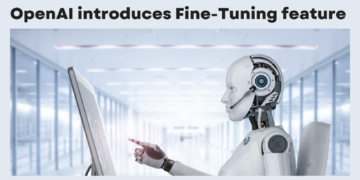Artificial Intelligence (AI) is gradually, yet successfully streamlining the recruitment process. Companies are turning to AI to find and hire potential candidates. Can implementing AI in hiring process bring in more talented employee or could it overlook the more important aspects a human recruiter would particularly look for?
The Pros of AI in Hiring
AI efficiently automates the tedious aspects of a recruitment process. The features that AI brings to the recruitment process can increase turnaround time, reduce administrative burden on HR teams and can reach a larger number of applicants. Here’s how:
- Resume Screening: AI algorithms can scan through a pile of resumes, filtering out those that don’t meet specific criteria. This frees up recruiters’ time to focus on high-potential candidates.
- Scheduling: AI scheduling tools can find times that work for both candidates and interviewers. This streamlines the process and saves time and keeps the email thread free of clutter and only keeps important information.
- Initial Assessments: AI chatbots can manage also manage preliminary interviews. This involves asking standardized questions, assessing basic skills and suitability. Interviewing multiple candidates, especially if the number has reached three digits is quite tough. So, AI chatbots could assess candidates based on the required skills and qualifications of the candidates.
The Cons of AI in Hiring
But companies that rely only on AI face the risk of losing out on capable and qualified candidates. Recruitment process is undeniably valuable and curating it to find the right fit for your company is extremely important. This includes the tangible qualities that look good on paper, and the intangible qualities that have a huge effect on team success and dynamics. Why you should not rely completely on AI while recruiting for a role:
- Unconscious Bias: AI algorithms are trained on existing data sets, which can perpetuate existing biases within the workforce. This raises concerns about overlooking qualified individuals from diverse backgrounds.
- Keyword Conundrum: AI prioritizes keywords and specific skills listed on resumes. This might undervalue candidates who possess transferable skills or lack the exact experience listed, but could excel in the role.
- Lack of Human Supervision: AI struggles to assess the intangible qualities that are crucial for success in many roles. Soft skills like creativity, critical thinking, cultural fit, and leadership potential are difficult to quantify and evaluate through an AI lens.
Striking a Balance
So, how can companies leverage AI’s strengths while making up to its drawbacks?
- Human Oversight: AI should be a powerful tool to assist recruiters, not replace them. Human judgment remains crucial for assessing soft skills, ensuring a fair and inclusive process, and identifying the “intangibles” that make a great candidate.
- Curated Training Data: Companies can actively address bias by using diverse datasets to train AI algorithms. This ensures a wider pool of qualified candidates are considered, regardless of background.
- Beyond the Keywords: Companies should focus on potential. Experience matters as much as the transferable skills of a candidate. Focusing on learning agility, their potential to grow within the role translate into long term success of the candidate and the organization.
By adopting a human-centric approach that leverages AI’s strengths while acknowledging its limitations, companies can create a more efficient and inclusive hiring process. This ultimately leads to attracting and retaining the best talent, fostering a diverse workforce, and driving innovation in the AI era.
Do the Pros Outweigh the Cons?
The answer to this heavily depends on what your goals are. If you are looking for the perfect candidate, both on paper and who translates into long term success, then human oversight is a necessity, not a luxury. AI can surely streamline your recruitment process, filter out candidates based on how you train them and what your immediate requirements are. If you are heavily relying on AI, then it is a given that you should take a very close look at your training data and eliminate biases so that you are being fair to each and every candidate.



























